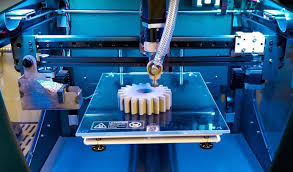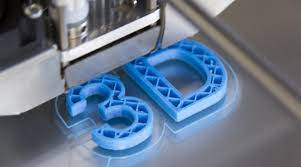
The advent of new high-speed micro-scale 3D printing technology is expected to promote the development of biomedicine and other fields resin 3d printer
Scientists at Stanford College in the USA have actually established a brand-new high-speed micro-scale 3D printing technology – roll-to-roll constant fluid interface production (r2rCLIP), which can print 1 million exceptionally fine and customizable micro-particles daily. This success is expected to advertise the development of biomedicine and various other areas. The appropriate paper was published in the most recent concern of “Nature” on the 13th.
(3d printer)
Microparticles created by 3D printing modern technology are extensively utilized in fields such as drug and injection shipment, microelectronics, microfluidics, and intricate manufacturing. Nevertheless, mass modification of such fragments is very difficult.
r2rCLIP is based upon the continual liquid user interface manufacturing (CLIP) printing innovation established by Stanford College’s DiSimone Research laboratory in 2015. CLIP utilizes ultraviolet light to strengthen the material rapidly into the preferred shape.
The leader of the most up to date study, Jason Kronenfeld of the Disimone Research laboratory, clarified that they first fed an item of film into a CLIP printer. At the printer, hundreds of forms are all at once printed onto the movie; the system then proceeds to clean, remedy, and eliminate the forms, all of which can be customized to the wanted form and material; ultimately, the movie is rolled up. The whole process, for this reason the name roll-to-roll CLIP, makes it possible for mass production of uniquely formed particles smaller than the size of a human hair.
(metal powder 3d printing)
Scientists said that before the advent of r2rCLIP, if you intended to print a set of large bits, you required to process it by hand, and the process progressed slowly. Currently, r2rCLIP can produce approximately 1 million particles per day at extraordinary rates. With new modern technologies, they can now quickly create microparticles with more complicated forms using a selection of materials, such as porcelains and hydrogels, to create hard and soft particles. The tough particles can be utilized in microelectronics manufacturing, while the soft bits can be utilized in medication shipment within the body.
The research team pointed out that existing 3D printing modern technology needs to locate an equilibrium in between resolution and speed. Some 3D printing innovations can produce smaller sized nanoscale particles yet at a slower rate; some 3D printing technologies can manufacture huge items such as shoes, family things, maker parts, football headgears, dentures, and listening device, yet they can not publish Fine microparticles. The brand-new technique finds a balance in between manufacturing speed and fine scale.
About Kmpass
Kmpass is committed to technology development, applications of nanotechnology and new material industries, with professional experiencein the nano-technology research and development and the application of materials.especially for 3d printing powder, 3d printing metal powder, 3d printing powder supplier, 3d printing for titanium powder. As a leading nano-technology development and product applications additive manufacturer, Kmpass dominates the markets. If you need high quality resin 3d printer, please feel free to contact us.
Inquiry us
